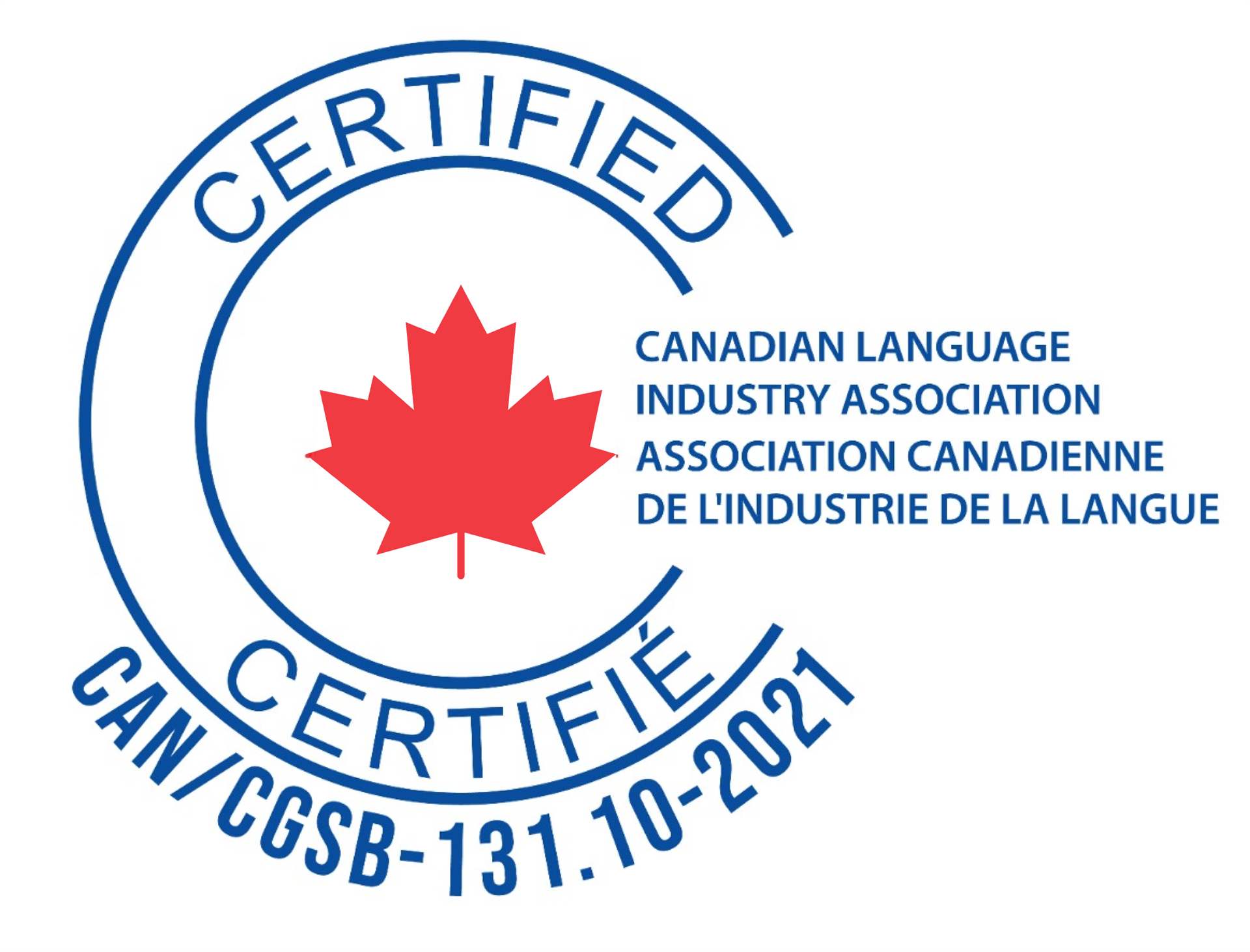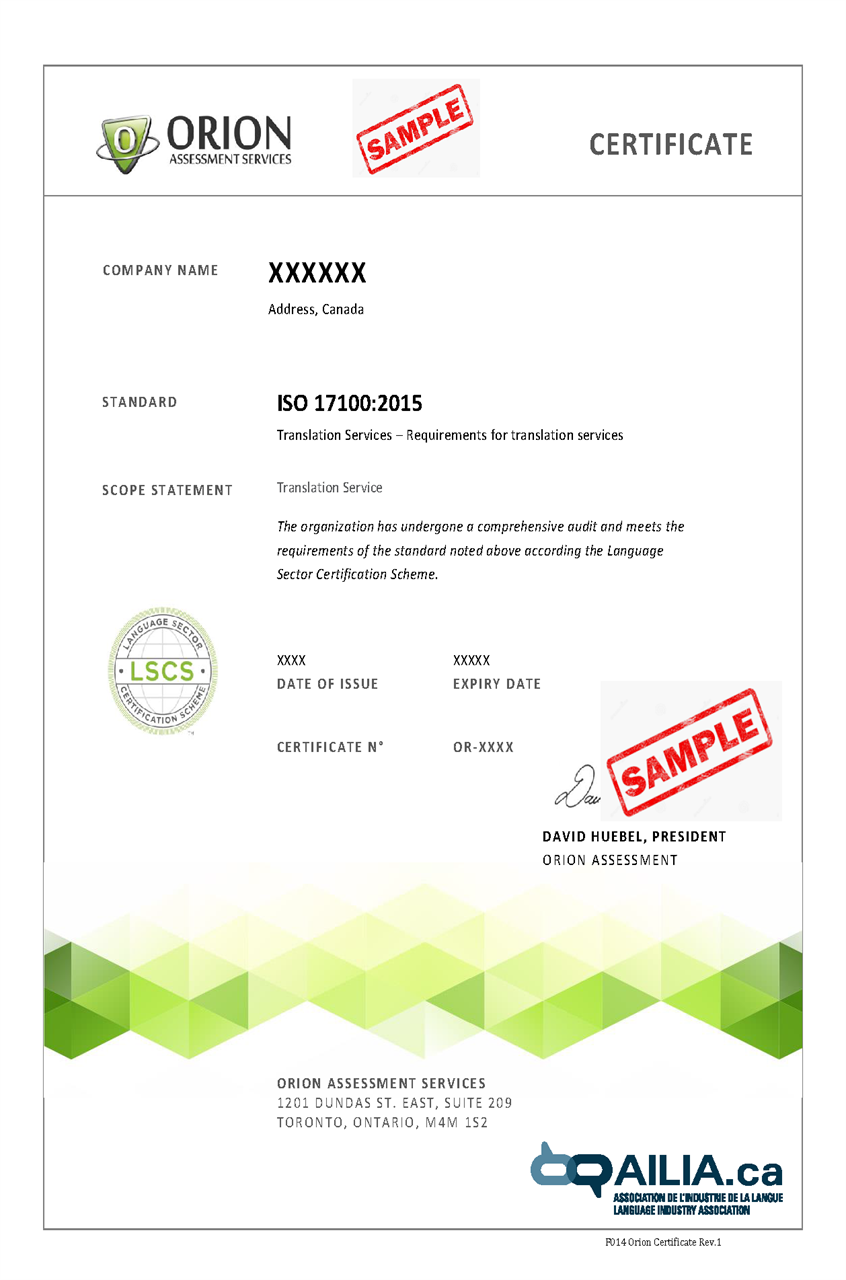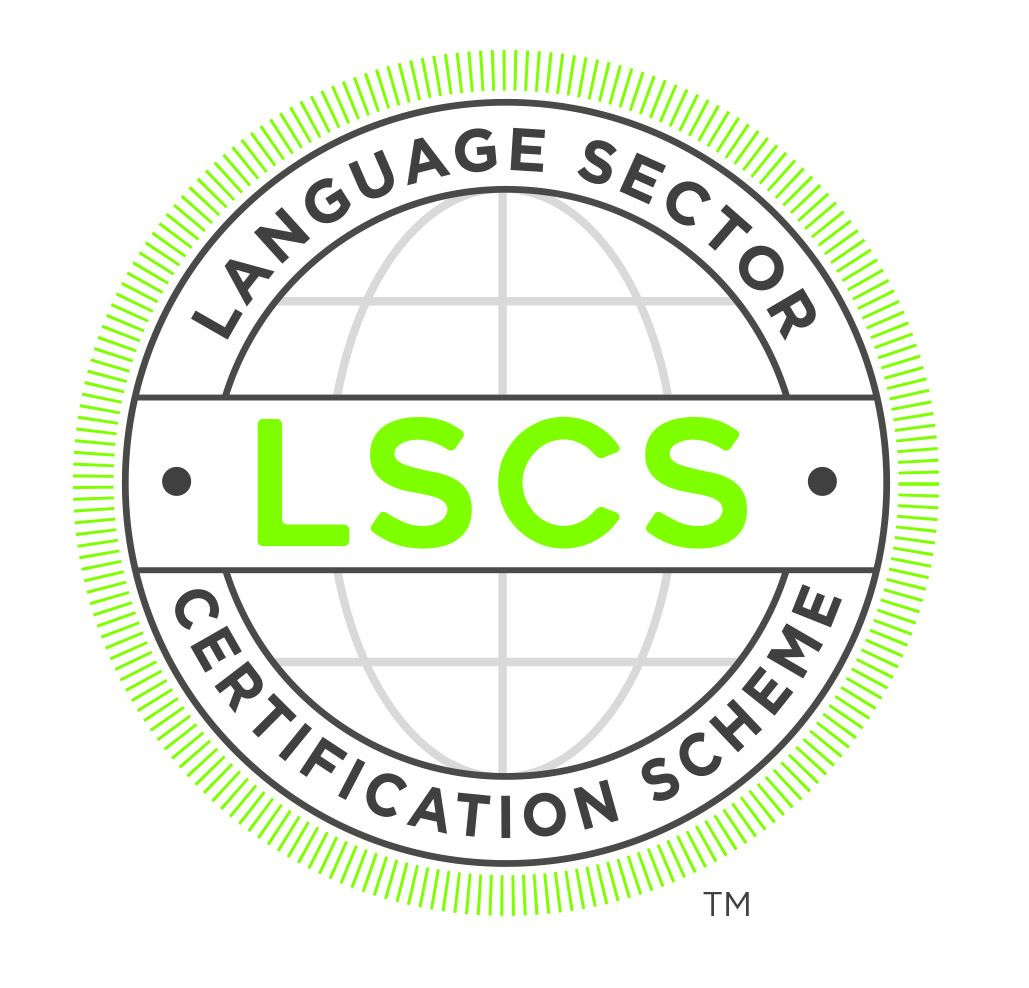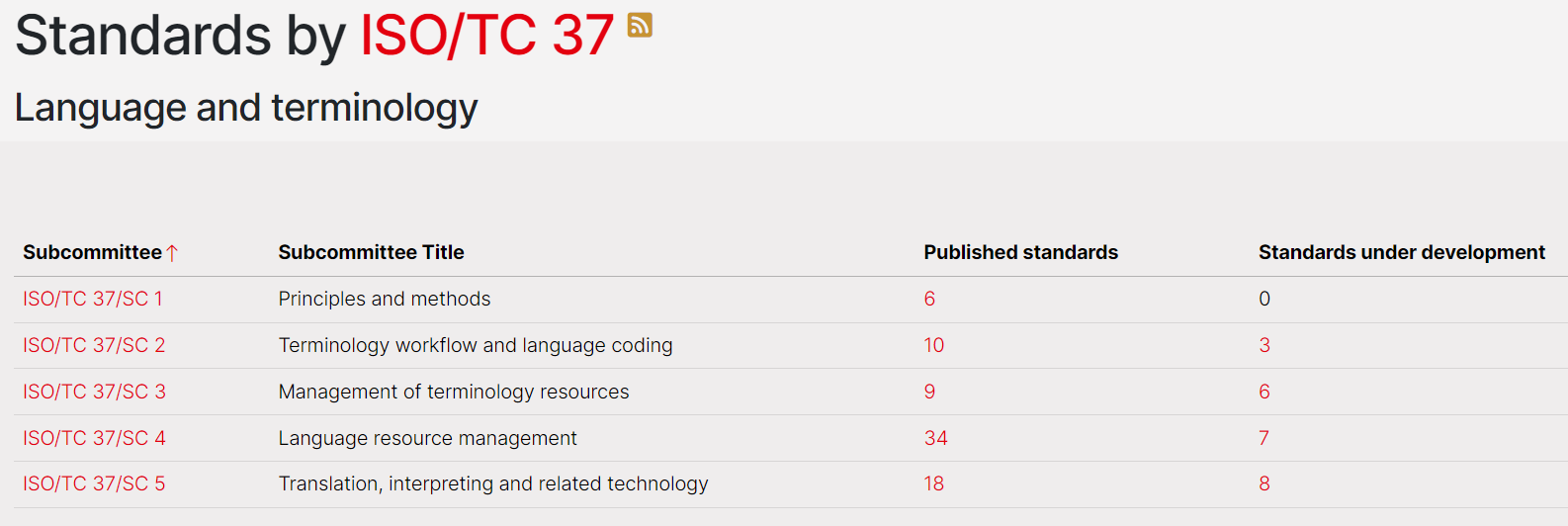Home > Certifications and Standards
Certifications and Standards
CGSB-131.10 - National Standard for Translation Services
 The CGSB-131.10 is the Canadian National Standard used to certify Translation Service Providers (TSP).
The CGSB-131.10 is the Canadian National Standard used to certify Translation Service Providers (TSP).
The Canadian Language Industry Association's (formerly AILIA) position is that business process used in the delivery of translation services is an essential component of quality of service, by having access to independently audited suppliers, purchasers of translation services in Canada are better protected. Conformity to an independent certification should form the basis for procurement policy and practices. An important business objective of the Translation Services Standard is to create a level playing field among certified translation service providers, making each responsible for living up to high professional expectations.
The Canadian Language Industry Association's position is that all those offering translation services in Canada should be able to provide independent proof of their competency in translation service delivery. The Translation Services Standard can act as a baseline for contracting procedures. By focusing on auditing translation service providers, the certification becomes a natural tool for contracting authorities to use when purchasing such services.
Supporting professional certification
Not only do leading Canadian TSPs promote professional certification for their employees and subcontractors, but the CAN/CGSB-131.10-2017, Translation Services standard supports professional certification by listing it as a criterion for certification.
More | PlusNational Standard Guide for Community Interpreting Services
 The Canadian Language Industry Association Certification based on the National Standard Guide for Community Interpreting Services (NSGCIS) provides for the highest level of professionalism and reliability on the part of interpretation service providers, thus inspiring confidence among clients that Canadian Language Industry Association accreditation represents an assurance of quality.
The Canadian Language Industry Association Certification based on the National Standard Guide for Community Interpreting Services (NSGCIS) provides for the highest level of professionalism and reliability on the part of interpretation service providers, thus inspiring confidence among clients that Canadian Language Industry Association accreditation represents an assurance of quality.
The National Standard Guide specifies the requirements for the provision of quality community interpreting services to ensure reliability in the provision of such services nationwide.
Community interpreting (also known as institutional interpreting) is usually done in the consecutive mode in a dialogue-like interaction. It enables communication between Limited English/French Proficiency speakers (LEP/LFP) and providers of public services such as:
- Healthcare/Hospitals
- Government agencies
- Community centres
- Courts and other legal settings
- Educational institutions
- Social services
ISO/TC37
https://www.iso.org/committee/48104.html
 The Canadian Language Industry Association (formerly AILIA) has a national and
The Canadian Language Industry Association (formerly AILIA) has a national and international mandate to promote the language industry of Canada. As a result of our mandate and strong history of advancing the Canadian language industry, the Standards Council of Canada has delegated the Chairmanship of ISO/TC37 SMC (SCC National Mirror Committee) to the Canadian Language Industry Association. The objective of Technical Committee (TC) 37 Language and terminology is standardization of descriptions, resources, technologies and services related to terminology, translation, interpreting and other language-based activities in the multilingual information society.
international mandate to promote the language industry of Canada. As a result of our mandate and strong history of advancing the Canadian language industry, the Standards Council of Canada has delegated the Chairmanship of ISO/TC37 SMC (SCC National Mirror Committee) to the Canadian Language Industry Association. The objective of Technical Committee (TC) 37 Language and terminology is standardization of descriptions, resources, technologies and services related to terminology, translation, interpreting and other language-based activities in the multilingual information society.
In this key leadership role, the Canadian Language Industry Association will be coordinating nationally with all stakeholders within the language field and is the Canadian representative liaison with the International Organization for Standardization (ISO). Maryse M. Benhoff, a member of the Board of Directors of AILIA, has accepted the responsibility of Chairperson for a period of 9 years. In this capacity, Maryse leads the Canadian delegation* of experts to Annual Meetings and coordinates with all the experts across the country. In 2018, Maryse M. Benhoff was also elected by the international members of TC37 as International Chairperson of TC37 / SC5.
The Canadian Language Industry Association is proud to take on this leadership role and looks forward to continuing to contribute to the strengthening of the language industry in Canada as well as representing Canada Internationally.
*The Canadian Mirror Committee collaborates with other members from thirty-four different countries in North, Central and South America; Europe; Africa; Asia; and the Middle East. Committee members work on the development of new standards in translation and terminology management. The effect will be to improve multilingual communication in today’s highly interdependent and interconnected world.
Click here to visit the Canadian Language Industry Association's ISOTC7 page
ISO has many Standards under Technical Commitee 37 in various stages. Visit their website.

